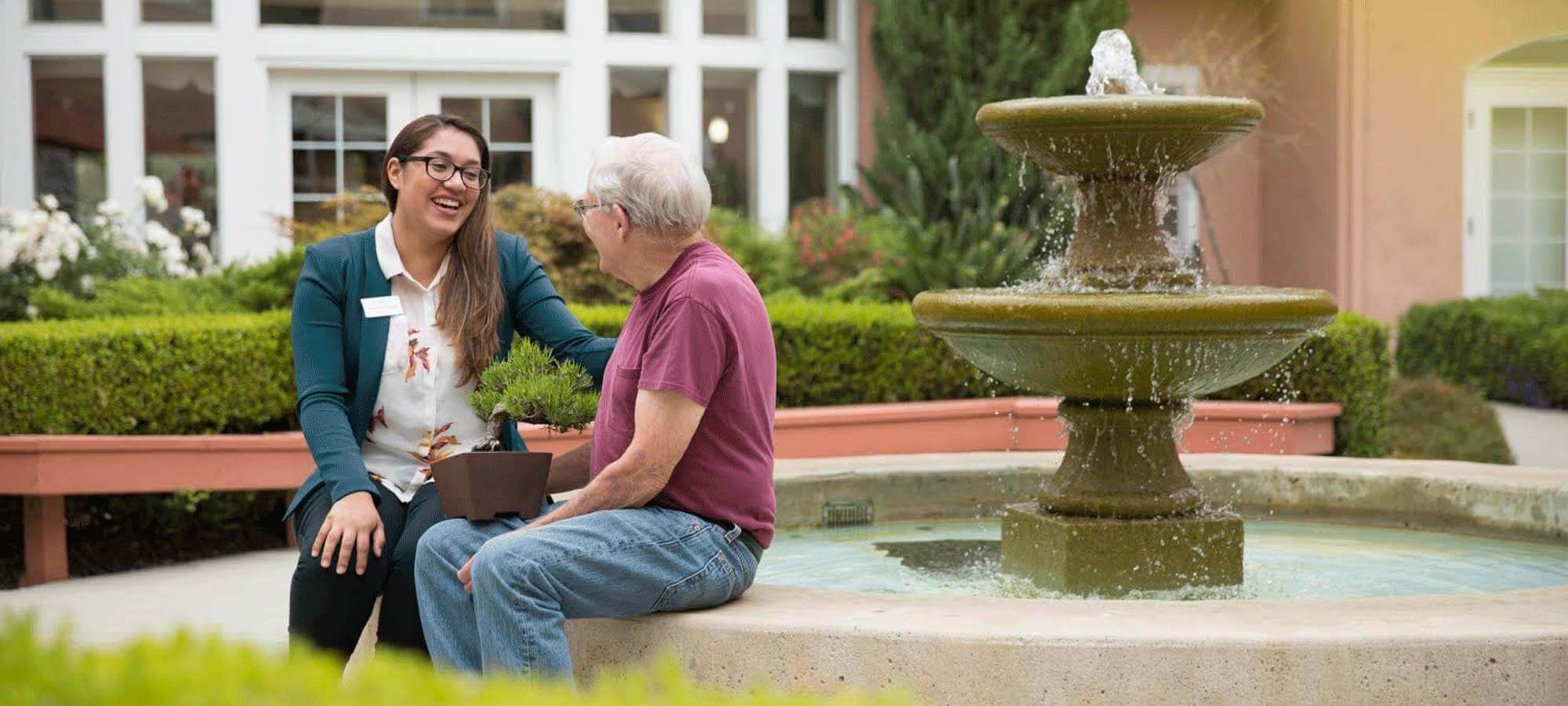The Sanctuary Assisted Living in Charlotte NC: Tailored Assistance Solutions
Essential Overview to Memory Care Provider in Assisted Living Neighborhoods
Navigating the landscape of memory care services within assisted living areas calls for a nuanced understanding of the specific programs and support group offered. As individuals age, memory-related obstacles can present significant difficulties to day-to-day living, making it crucial to have access to customized care. From team training and credentials to ecological adjustments and restorative tasks, the range of solutions given can substantially impact the health and quality of life for homeowners. By exploring the intricacies of these necessary components, a deeper insight into the all natural strategy of memory care solutions in assisted living areas arises, losing light on the comprehensive assistance available to those in requirement.
Specialized Memory Care Programs
Specialized memory care programs within assisted living neighborhoods play a vital function in supplying customized assistance for people with cognitive disability. These programs are particularly created to satisfy the special demands of citizens facing memory-related obstacles such as Alzheimer's and mental deterioration. By concentrating on individualized treatment plans, specialized staff training, and producing a secure and revitalizing environment, these programs aim to boost the top quality of life for homeowners while promoting freedom to the greatest extent possible.
The core parts of specialized memory treatment programs typically consist of structured day-to-day regimens, memory-enhancing tasks, and sensory excitement to engage homeowners cognitively and psychologically. Furthermore, these programs generally supply specialized dining choices, drug monitoring support, and assistance with tasks of day-to-day living to ensure thorough take care of residents with varying degrees of cognitive decline.
Personnel Training and Credentials
Efficient personnel training and qualifications are important parts of making sure premium treatment for homeowners in memory care programs within assisted living communities. Team participants functioning in memory care systems must go through specific training to understand the unique needs of homeowners with mental deterioration and Alzheimer's illness.

Environment Adjustments for Memory Treatment
To ensure a comprehensive approach to care that addresses both team proficiency and physical environments, the setting in memory care devices must be attentively adapted to meet the one-of-a-kind requirements of homeowners with dementia and Alzheimer's illness. The Sanctuary charlotte assisted living. Developing a dementia-friendly environment entails making particular adjustments that can aid locals feel risk-free, comfortable, and involved
One important facet of environment adaptations is making certain security and safety. This includes carrying out measures such as check it out protected entries and leaves to avoid locals from straying, mounting handrails and get hold of bars for support, and minimizing journey dangers throughout the living space. In addition, making use of color-coded signs, clear signs, and familiar objects can aid citizens navigate their surroundings more quickly.
Creating rooms that are easy to browse and promoting self-reliance through attributes like memory boxes and aesthetic pointers can also improve the high quality of life for locals with memory impairments. By carrying out these setting adjustments, assisted living communities can provide a helpful and nurturing setting for people with mental deterioration and Alzheimer's disease.
Therapeutic Activities and Interaction
Interaction in deliberate therapeutic activities plays an essential function in improving the health and cognitive feature of people living in memory treatment units. These activities are thoroughly created to stimulate memory, cognition, and social interaction amongst residents. Therapeutic activities can vary from sensory stimulation exercises to reminiscence treatment sessions, art and music treatment, physical exercise programs, and cognitive games. Each activity is tailored to meet the particular needs and abilities of the citizens, promoting a sense of accomplishment and self-respect.
Participation in healing activities not just aids individuals preserve cognitive capacities but likewise supplies emotional and social benefits. Involving in these activities can decrease feelings of clinical depression, anxiety, and isolation frequently experienced by individuals with memory impairments. Furthermore, these activities next provide a structured routine and a feeling of function for residents, adding to a total enhanced high quality of life.
Memory treatment communities usually have actually devoted team learnt assisting in healing tasks, making certain that homeowners obtain customized and meaningful engagement that sustains their emotional and cognitive wellness.
Interaction Strategies and Support
In facilitating meaningful interactions and cultivating holistic wellness for individuals in memory treatment units, efficient communication methods and support play a crucial role. Interaction in memory care includes comprehending homeowners' distinct requirements, preferences, and capabilities.
Supporting interaction in memory care setups extends past spoken interactions. Additionally, caretakers educated in interaction techniques for dementia care can browse challenges effectively and react empathetically to residents' emotions and behaviors.
Final Thought
To conclude, memory treatment services in assisted living neighborhoods play a critical duty in supplying specialized treatment and support for individuals with cognitive impairments. Via specific programs, trained team, adjusted settings, restorative activities, and effective interaction techniques, these solutions objective to improve the quality of life for locals with memory problems. By addressing the distinct needs of these people, memory care solutions add to creating a secure and supportive setting that advertises total well-being and comfort.
Effective team training and qualifications are important components of ensuring high-quality care for locals in memory treatment programs within assisted living communities - The Sanctuary memory care charlotte nc.Certifications for personnel in memory care programs normally include certifications in dementia treatment or Alzheimer's care, along with relevant experience in functioning with people with memory impairments. Continuous training and expert growth possibilities are important to ensure that staff stay upgraded on the latest best techniques in memory care and proceed to provide high-grade assistance to residents with cognitive challenges. By investing in team training and credentials, assisted living areas can enhance the general well-being and high quality of life for homeowners in memory care programs
